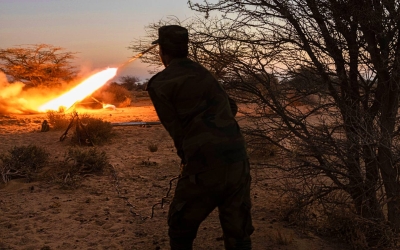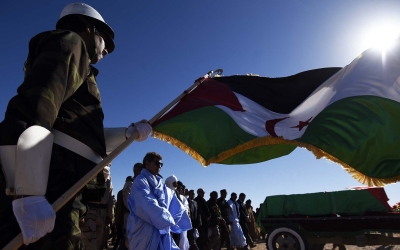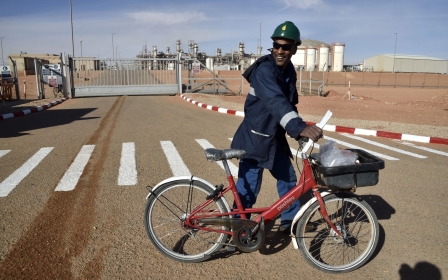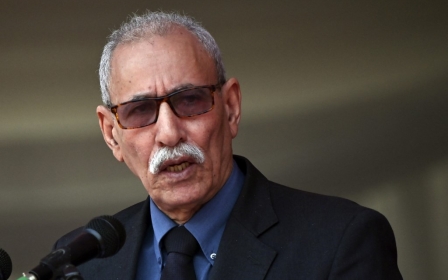Spanish U-turn on Western Sahara upends relations with Algeria
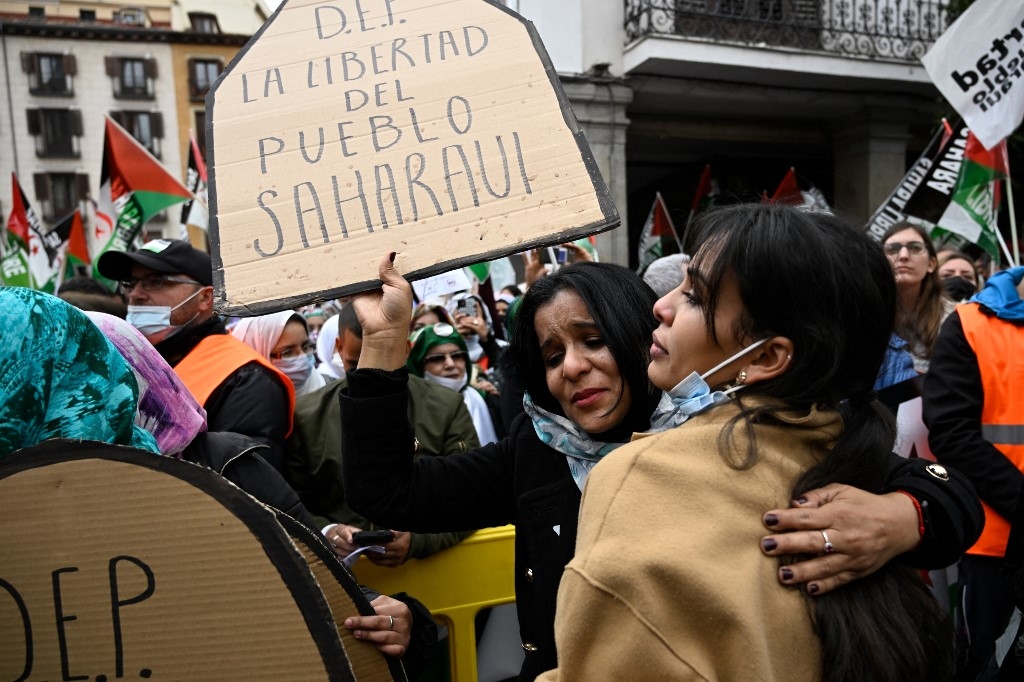
Algeria's relations with Spain were dealt another blow this week after Algiers' decided to suspend its decades-old cooperation treaty with Madrid followed by its banks suggesting they could curb ties with Spanish businesses.
Tensions between the two countries have been brewing since March, when Spain announced its support for Morocco’s autonomy plan for Western Sahara in an abrupt diplomatic U-turn.
The issue of the former Spanish colony, classified as a "non-self-governing territory" by the United Nations, is the source of a decades'-long conflict between Morocco and the Sahrawi independence movement, the Polisario Front, which broke off diplomatic relations with Rabat in August 2021 .
Western Sahara is currently 80 percent controlled by Morocco who regard the area - which is rich in phosphates and adjacent to bountiful Atlantic fishing waters - as an integral part of their own territory. Meanwhile, Algeria, which shares a border with Western Sahara, has long hosted and supported the Polisario Front.
New MEE newsletter: Jerusalem Dispatch
Sign up to get the latest insights and analysis on Israel-Palestine, alongside Turkey Unpacked and other MEE newsletters
The decision of the Algerian presidency on Wednesday evening to suspend the Treaty of Friendship, Good Neighbourliness and Cooperation, signed in 2002 with Spain, did not "fall out of the sky for no reason even though for a few weeks tensions had calmed down a bit," an Algerian diplomatic source told Middle East Eye.
The Spanish Prime Minister Pedro Sanchez, who on the same day in the Spanish Parliament reaffirmed the historic change in the Spanish position on Western Sahara, described Morocco's autonomy proposal over the Sahara as the "the most serious, credible and realistic basis" to resolve "a conflict that has lasted for too long."
He attempted to justify his position by emphasising that other European states had adopted similar stances on the conflict.
"France supports the Moroccan proposal, and in the same way the President of Germany has recognised it as serious and credible, as was also recognised by the United States, or the Netherlands in May.”
This volte-face in Spanish diplomacy, which had previously advocated neutrality between Rabat and the Polisario, has created a shockwave in Algeria, where the authorities are demanding a self-determination referendum for the Sahrawis.
Impact on business
In the aftermath of the Spanish decision, Algiers recalled its ambassador to Spain and the Algerian national hydrocarbon company Sonatrach declared a rise in the price of gas being delivered to Spain, which heavily relies on Algerian natural gas. In 2021, Spain imported 41.4 percent of its gas from Algeria.
On Thursday, the Algerian Association of Banks and Financial Establishments urged its members to reduce business ties with Spain.
In response, the Spanish foreign minister vowed his country would "defend its interests", but ruled out any impact on the gas supply deal between the two countries.
“The big question that arose that day was: is gas affected?" asked one business manager in Algiers, who has been a witness to a wave of panic in business networks as many wonder if the banks' decision and the suspension of the cooperation treaty would be compatible with the trade agreement between Algeria and the European Union.
Statistics from the Algerian Ministry of Finance and the General Directorate of Customs show that Spain was Algeria's fourth-largest export market in 2020, after China, France, and Italy, and its fourth-largest source of imports, behind Italy, France and Turkey.
'I have the impression that the Algerian authorities once again feel ignored'
- Spanish source
Several Spanish sources contacted by MEE said they are worried about this escalation which, according to one of them, "is only the work of Pedro Sanchez".
“Everyone in Spain agrees on one thing: the reversal of position on Western Sahara is the sole responsibility of Sanchez. Neither the PSOE [Socialist Party], nor the government, nor even the Minister of Foreign Affairs was consulted,” said one of the sources.
“In his speech to Parliament, Sanchez defended the diplomatic U-turn on the Western Sahara issue but did not once mention Algeria or answer questions about the bilateral crisis. I have the impression that the Algerian authorities once again feel ignored," the source added.
Threats and sanctions
In another sign of strained relations, no Spanish airports were among the new destinations announced by Algeria's transport ministry in March as part of the country's plan to increase the number of Algerian Airlines flights.
Algiers has also suspended indefinitely all repatriations of migrants arriving on the Spanish coast. There were more than 11,000 in 2021.
And then in April, the Algerian energy minister Mohamed Arkab threatened to end the gas contract with Spain if the latter re-routed the natural gas delivery to any other destinations not mentioned in the contract - in an apparent reference to Morocco.
Algeria suspended its gas supplies to Morocco in November 2021.
Also in April, Algeria warned of possible rises in the price of gas exported to Spain, justifying that the prices charged were lower than those on the international markets.
“Tensions had eased a bit lately. We hoped for an improvement in the situation, since Algeria had promised not to touch the contracts already signed, especially in the field of gas, at least until their expiry," said one source familiar with commercial ties between Algiers and Madrid.
In reality, however, Algiers "was waiting for explanations which never came," says a diplomatic source.
"Not only has the requested clarifications never come, but Sanchez reiterated Spain's choice of Morocco [side]."
*This article is an edited translation of an article first published by Middle East Eye in French.
Middle East Eye delivers independent and unrivalled coverage and analysis of the Middle East, North Africa and beyond. To learn more about republishing this content and the associated fees, please fill out this form. More about MEE can be found here.


